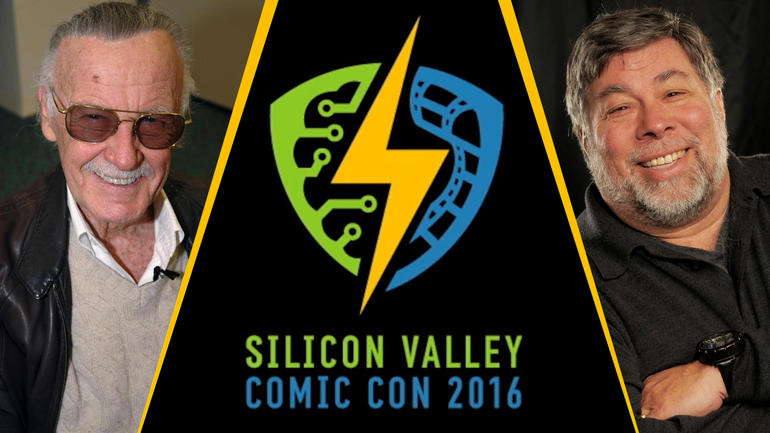
I've been writing about technology for a while now. But, before I cut my teeth writing about Apple TV, Palmer Luckey and how absolutely fantastic the HTC Vive is, I wrote about comics.
For years, I published a weekly wrap up of the best issues on store shelves from my gaming PC, which I frequently used to browse tech sites like techradar and write code for my undergraduate computer science courses. (Here's the proof.)
I never felt like two different people, and I knew I couldn't have been the only person out there who liked to read coding manuals during the week and then cozy up with the latest issue of Astonishing X-Men on the weekend. (Just the Joss Whedon run, though.)
Both kinds of writing, technical and creative, were important to me. And for years these two parts of my life coexisted without a tangible connection between them.
I never gave it much thought until I found myself at Silicon Valley Comic Con, the first convention I've ever heard of that seeks to explicitly connect the worlds of illustrated entertainment and technology.
When Steve Wozniak announced the event in April of last year, it sounded more like an expansion of the wildly popular San Diego Comic Con rather than a unique bridge between the two mediums. But it looks like I might've judged a (comic) book by its cover.
Not everyone was there to attend the Convergence of Technology and Social Media in Comics panel on Saturday morning, obviously, but those who were are the aforementioned people I knew existed but never met before.
Sign up for breaking news, reviews, opinion, top tech deals, and more.
This was the first year of the event and, within a single day, became the biggest the San Jose Convention Center had ever seen. And while something like this wouldn't have seemed so out of place in San Francisco's Moscone Center (which, just last week hosted the Game Developers Conference), San Jose was ultimately the better venue.
It's better not because it's bigger or more lavish than any other convention center in the country – it's better because it's Steve Wozniak's hometown and the birthplace of Apple, the company that would ultimately create the machines artists would use to create comic books in the 21st century.
Tech and comics, together at last
"Why hasn't this happened before? Why have comic publishers avoided working with Silicon Valley and have decided instead to travel 350 miles due South to Los Angeles?"
I kept mulling over those questions while walking between stalls of collectables, signed Marvel movie posters and virtual reality headsets. Why haven't Silicon Valley and the comic book industry come together before right now?
"Maybe," I thought, "comics are just now starting to pick up steam again."
I dug into it a bit more and while that theory held water (comic sales did drop off around 2000 to 2002), the slight dip in sales certainly didn't stop San Diego from having a wildly popular convention those years.
I went back to the drawing board. Maybe the people in the comic book industry just don't love technology the same way us technology people love stopping by the shop on Wednesday to pick up the latest issues.
This proposition was tougher to disqualify. There's no hard data out there about how many comic book editors look forward to owning a Samsung Galaxy S7 Edge or how many bought a Samsung Gear VR on the day it was released.
Maybe we techies are more passionate about their work than they are about ours.
That theory almost made sense but, the more I thought about this desperate longing for validation from another industry, the more I realized how much in common these two industries share.
Of course comic editors and artists care about technology. Without the latest version of Photoshop or Final Draft, it'd be impossible for artists like Fiona Staple to put together panels for Saga or Jeff Lemire to portray the eerily familiar post apocalyptic world of Sweet Tooth, and without software developers to write applications like comixology, a library and storefront for digital comics, tens of thousands of avid comic fans would never exist.
For the past 10 years, the comic book industry hasn't been ignoring technology and its fans, it's been a part of it all along, even if it took them until 2016 to show it publicly.
I had a good time at the inaugural Silicon Valley Comic Con. It succeeded in providing a public outlet for two of my life's passions that have until now existed separately. And while this year's show felt a bit more like San Diego Comic Con featuring Palmer Luckey than a true union between the two mediums, I have faith that SVCC 2017 will do even more to appease the comic-loving, Android-toting technobibliophiles out there.

Nick Pino is Managing Editor, TV and AV for TechRadar's sister site, Tom's Guide. Previously, he was the Senior Editor of Home Entertainment at TechRadar, covering TVs, headphones, speakers, video games, VR and streaming devices. He's also written for GamesRadar+, Official Xbox Magazine, PC Gamer and other outlets over the last decade, and he has a degree in computer science he's not using if anyone wants it.